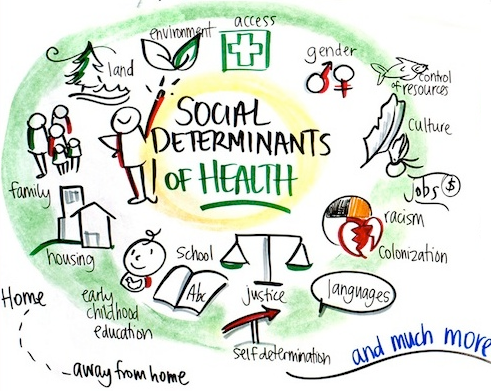Knowledge is power: addressing disparities with information by Renee Bicaba
When a person thinks of health care, thoughts that usually come to mind are medical providers, medicine, hospitals, and medical conditions. However, one of the biggest ideas I have learned during my service term is that health care encompasses so much more than medicine. A person’s health status can be dependent on their personal environment and living conditions. Housing, Transportation, Socialization, and Income are just a few conditions that can affect a person’s underlying illness. As the Care Navigator at Fairmount Primary Care Center, I have been screening patients for social determinants of health and connecting them to community organizations all over Philadelphia. Using PRAPARE: Protocol for Responding to and Assessing Patient Assets, Risks, and Experience, I am able to find out what patients need help with and address their concerns. Though it has only been a month since starting PRAPARE, I have learned so much more about the patient population I serve.
My experience screening patients so far has been eventful and very rewarding. During one of my very first encounters, I walked into a patient room to screen an older adult male who was waiting for the provider. When I questioned him about his housing situation, he told me he received an ambiguous letter from the Philadelphia Housing Authority (PHA) building where he currently lived. I told him that I would explore the situation and call PHA to find out what was happening while he was with his medical provider. Unfortunately, I learned that his apartment building was being shut down and that he was not properly notified. They could not tell me when he would need to move out or what measures were being put in place to help residents find new housing. I attempted to call one of PHA’s managers who failed to answer my calls and returned to the room to speak with the patient. I knew I would not be able to immediately fix his housing situation, but I gave him resources of different housing agencies in Philadelphia that he could explore.
While it was unsatisfying to know that I could not instantly solve all of this patient’s concerns, it made me recognize the importance of my service and volunteerism. Some days I spend my time helping patients get access to food resources, and other days I am connecting patients to employment resources. It has taught me the power of education and access to knowledge, and my service gives me the opportunity to advocate and empower those who are living in underserved communities.
[Thumbnail Image Description: Renee and another NHC member sit outside at a table having a discussion]
[ Body Image description: Drawing titled “Social determinants of Health” showing various elements that can affect a person’s health status.]